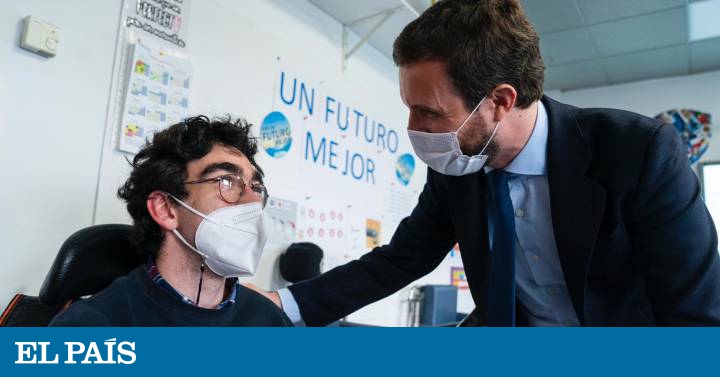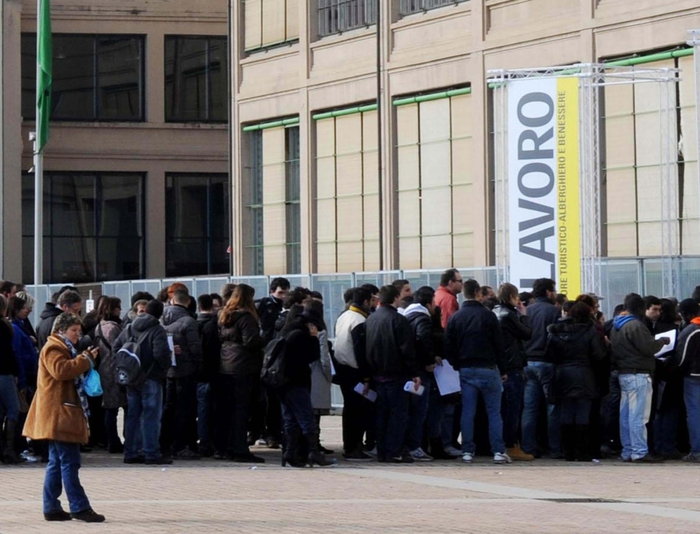The pandemic has focused on many aspects of our lives, but, without a doubt, where we live has made great differences between people.
The housing crisis of the last decades leaves us with a bleak panorama in which too many people live in slums.
In this sense, people with disabilities have not been outside the difficulties associated with where they are living.
MORE INFORMATION
83-year-old Jesuit jailed for terrorism in India
The imposture of the "call effect"
One of the girls kidnapped by Josep Kony's army tells how she now lives in confinement
In general, considerable progress has been made in residential care for people with functional diversity.
There are more and more organizations that understand the importance of the space they inhabit, but the under-endowment of resources by the State and the autonomies makes life with dignity for these people based in small communities really included in the cities very complicated.
The demands that we are going to read today by some entities have been in place for too long and their entrenchment only keeps our country away from the idea of what is truly inclusive.
And this remoteness is not surprising considering the most recent debates on inclusive education led - and manipulated - by famous people who have achieved more space and repercussion than the scientific or educational community.
This situation experienced in recent weeks is nothing more than a metaphor for what has happened in some other issues related to the lives of people with disabilities.
It is not well known that currently there are personal assistance projects that are economically more profitable than large residences and represent a much higher social return.
There are key reports in this regard, such as that of the Barcelona City Council (2012), set up with different organizations;
that of the Community of Madrid (2014), carried out by Intersocial, or that of Andalusia (2017), carried out by the Pablo Olavide University.
All of them show that personal assistance is much more advantageous from an economic point of view but, above all, from the benefit it entails for people with functional diversity themselves.
The Independent Living Offices have always been key in promoting this type of study that uncovers a reality in the country: disability generates a business that some well-known entrepreneurs do not want to do without.
And if necessary, they will exert all the pressures within their reach to perpetuate the model of large residences, even if it costs us more money, in addition to consolidating an exclusion that, in many cases, also violates basic rights.
(...) personal assistance is much more advantageous from an economic point of view but, above all, from the benefit it entails for people with functional diversity themselves.
The improvements in the quality of life of personal assistance are indisputable.
And the reports come to a myriad of conclusions that no regional or central government should ignore in order to turn around the care for people with disabilities.
But policy makers are not exempt from single discourses based on economic points of view disguised as medical-rehabilitative models, which forget the importance of the social model and also ignore the decisions of people with functional diversity.
The fundamental thing is not the capacity that you have personally to carry out an activity, but the competence that the system has to promote the necessary supports so that you can decide about your own life.
And this goes from freedom of movement to the possibility of deciding on what is more spiritual.
But the permanent confinement of many people with disabilities in macro-resources, more typical of times past, must end taking into account the data currently available and the social models of care for people.
It is anachronistic that still in the last decade there have been inaugurations of resources in which no reader of this text wishes to be, much less live.
People with functional diversity have had to endure for too long being ignored when deciding about their own lives.
It cannot be that some private interests manipulate public opinion with speeches that, in no case, are for the common good or correspond with the lines of discourse of human rights and, specifically, the International Convention on the Rights of Persons with Disability ratified by our country.
The presentation of speeches clearly outside these conventions threatens not only people with disabilities, but also against human dignity.
Óscar Martínez
is a professor at the Pere Tarrés School of Social Education and Social Work - URL.














